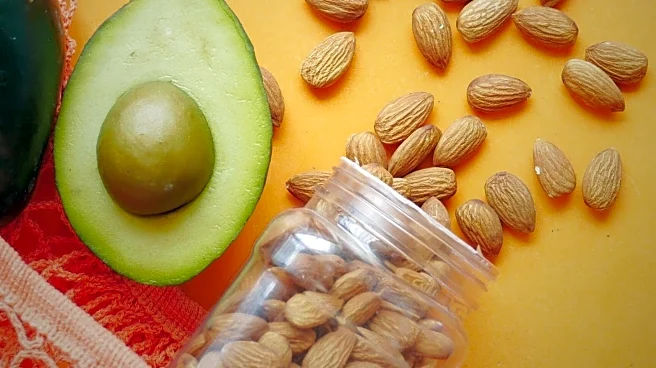What's Happening?
A dermatologist has identified several foods that can contribute to glowing skin, emphasizing the importance of diet in skin health. Key nutrients such as vitamins A, C, and E, omega-3 fatty acids, and protein are essential for maintaining skin elasticity, hydration, and protection against environmental stressors. Foods like avocados, salmon, eggs, pumpkin seeds, chickpeas, flaxseeds, berries, quinoa, turmeric, olive oil, walnuts, bell peppers, almonds, dark chocolate, and water-rich foods are recommended for their beneficial properties.
Why It's Important?
Incorporating these foods into one's diet can enhance skin health from the inside out, complementing external skincare routines. A diet rich in these nutrients supports collagen production, reduces inflammation, and protects against oxidative stress, contributing to a youthful and radiant complexion. This approach aligns with holistic health practices that emphasize the interconnectedness of diet and physical appearance, offering a natural and sustainable way to improve skin health.
What's Next?
Individuals seeking to improve their skin health may consider integrating these foods into their daily meals, potentially leading to noticeable improvements in skin appearance and overall well-being. Nutritionists and dermatologists may continue to explore the relationship between diet and skin health, providing further guidance and recommendations. As awareness grows, more people may adopt dietary changes as part of their skincare regimen.
Beyond the Headlines
The emphasis on diet for skin health highlights the broader impact of nutrition on physical appearance and well-being. It underscores the importance of a balanced diet in preventing age-related skin issues and promoting mental health and self-esteem. This perspective may influence public health initiatives aimed at encouraging healthy eating habits for comprehensive health benefits.











